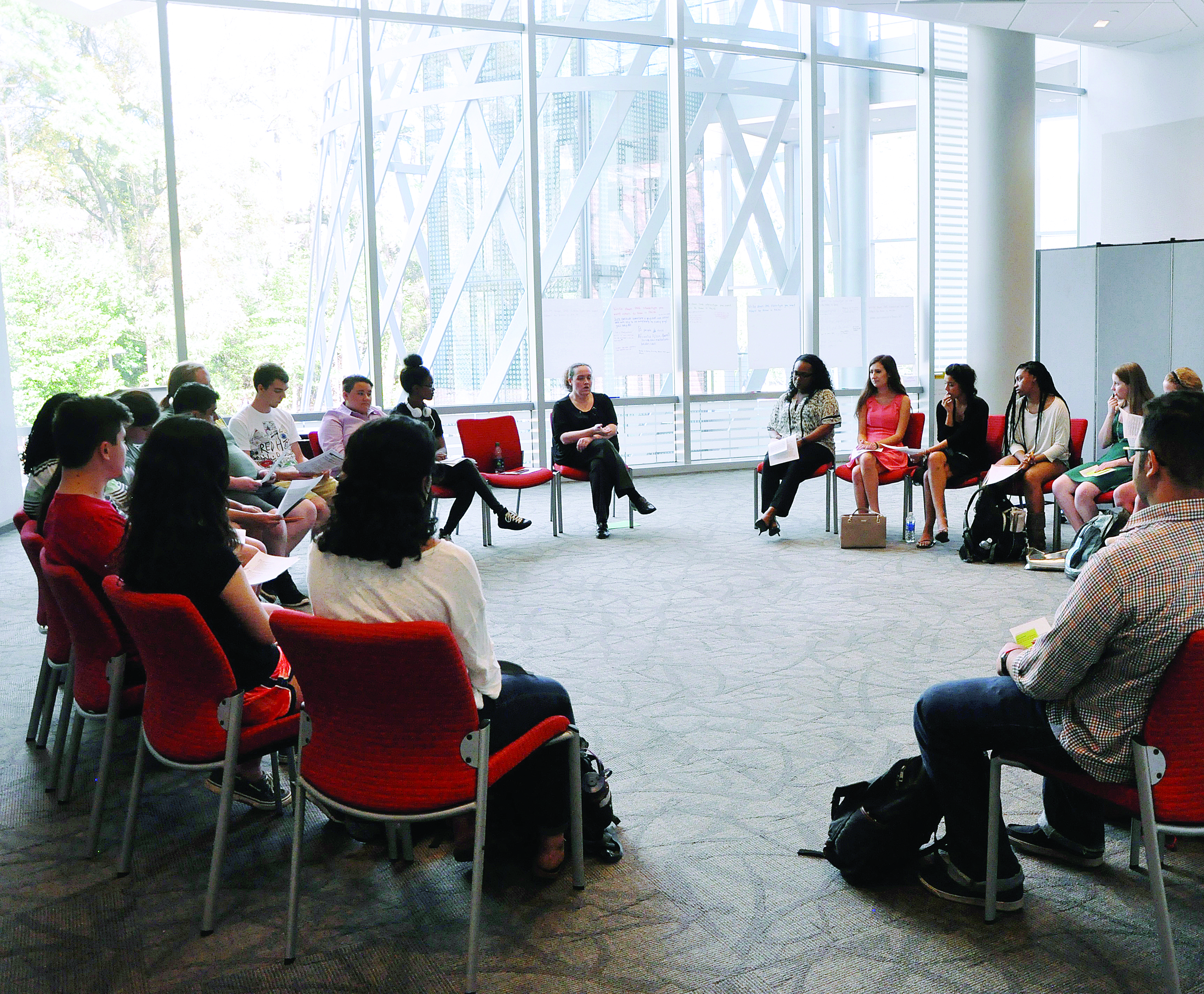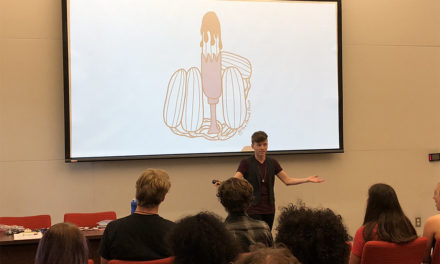Anahzsa Jones | Editor-In-Chief
Editor’s Note: The African American Choral Ensemble has been rescheduled to begin in fall 2018.
Beginning in the spring semester of 2018, the Music Department will be offering an African American Choral Ensemble (AACE) for academic credit, in collaboration with the African American Cultural Center.
Dr. Daniel Monek, the head of the Music Department, said, “The group will provide NCSU students and members of the Raleigh community an opportunity to explore, study and perform vocal music of the African diaspora, including spirituals, folk forms, traditional and contemporary gospel and formally-composed choral works by composers of African descent.”
The idea for the AACE came about through discussions between Monek and Moses Greene, the director of the African American Cultural Center (AACC). The two shared a desire to introduce students to vocal music from the African diaspora. The Music Department, faculty, staff and students all had a hand in bringing the idea to reality, according to Monek.
Monek also cites the New Horizons Choir as inspiration for the new ensemble. New Horizons Choir was a performance ensemble that began in 1977 and focused on Gospel music and spirituals. It is no longer offered through the Music Department.
Greene also credits the idea to conversations he had with alumni and faculty who were at NC State in years past.
“The basis for this comes out of traditions that were here at NC State 25 years ago, when there was an academic component that went along with, at that time, the New Horizons Choir,” Greene said. “This is an attempt to return, if you will, resurrect that academic component which gives the sacred music of the diaspora the training, the teaching that it deserves.”
The Music Department currently offers traditional coursework that focuses on the music of the African diaspora, such as History of African American Music. What these courses lack, according to Monek, is the application of the information.
The Music Department has not had “an applied course or ensemble that allows students to explore the interpretation and performance of this music since the discontinuation of the New Horizons choir many years ago,” Monek said.
The New Horizons Choir began under the direction of music faculty member Eleania Ward, and was later directed by adjunct faculty member Ron Foreman. Monek feels that the discontinuation of the choir has “left a gap in the Music Department’s offerings.”
A gap was also left in the cultural offerings of NC State. Two of Greene’s goals upon becoming director of the AACC were to expand focus on the visual and performing arts and increase faculty engagement. This ensemble provides a marriage of those goals that he feels will revive the sense of community for African-American students that existed in the past.
“When you’re talking about the retention and the recruitment of African-American students and presence of the African diaspora,” Greene said, “you’ve got to think, what is going to reflect them culturally that while they are away from home, they can say ‘while I was away from home, I was a part of this?’ There was a greater sense of those things 20 years ago.”
For Greene, the course is an opportunity to revive the focus and connections of the African American Cultural Center. Black Repertory Theater, Dance Visions, and New Horizons Choir were three organizations that existed in the past that were integral to African-American culture on campus. Dance Visions is the only one of these still active at NC State.
“The African American Cultural Center was the place where those things came out of,” Greene said. “In speaking with those who were here 20 years ago, in speaking to alum, and speaking to what made the AACC feel like home, there were affinity groups, Dance Visions, Black Repertory Theater and New Horizons, that were connected to the center. And so I’m just trying to resurrect that which once was part of the life’s blood of the center.”
Monek stated more technical goals for the ensemble: “To introduce students through performance in a choral setting to the variety of vocal music that is a part of the African diaspora.”
The students will be learning vocal pedagogy, the study of the art and science of voice instruction and techniques that Greene said he hopes will empower them to sing African-American and Pan-African sacred music in a more skillful way.
It is also Monek’s goal that students in the group will come to understand and appreciate the legacy of African-American choral music by experiencing it in performance.
The Music Department also hopes for the AACE to support and collaborate with student-run ensembles affiliated with the Music Department and tied to the choir’s mission, such as NC State’s student gospel ensemble, Uninhibited Praise.
Daniel Hueholt, a third-year student studying meteorology with a piano performance minor, is excited to see how the ensemble develops.
“Anything bringing greater diversity to the Music Department is certainly a good thing,” Hueholt said. “Besides it obviously being important to have greater representation of minority students, I think it’ll be great to have an ensemble whose programming brings in composers from non-traditional backgrounds.”



